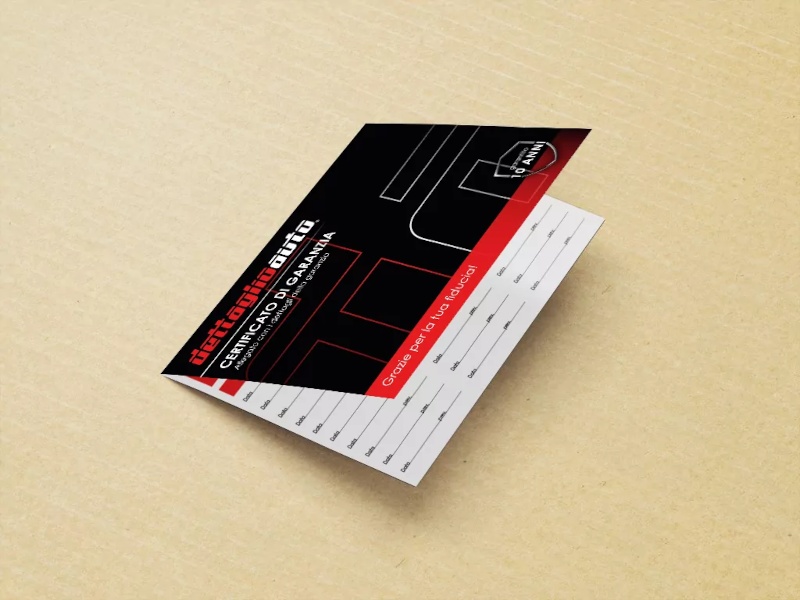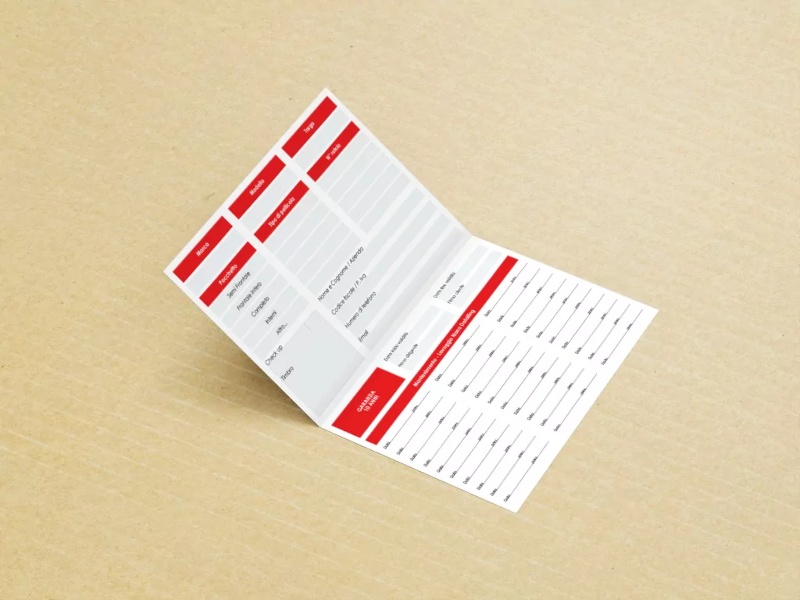- Introduction to Car Wrapping and PPF Films
- Differences between Car Wrapping and PPF Films
- Material
- Duration and warranty
- Costs
- Conclusion: Which of the Two Services is Worth Investing In?
Speaking of car coatings, we can identify two services that are often misunderstood or considered the same thing: car wrapping and the application of PPF (Paint Protection Film). In general, we can say that: Car wrapping is a service whose main purpose is to change the vehicle’s aesthetics by customizing its color and design. On the other hand, the application of PPF films represents an avant-garde service in the world of car protection and care, aiming primarily to preserve the aesthetic and integrity of the vehicle while enhancing its appearance.
We have decided to write this article because we observed a general confusion among customers regarding these two services, leading them to think that car wrapping and the application of PPF are essentially the same thing, due to the lack of accurate information. We will, therefore, compare the two services by analyzing the type of material used, their main characteristics, durability, and final cost.
Delving into these topics will allow you to fully understand the differences between the two types of services and make an informed choice based on your specific needs.
Introduction to Car Wrapping and PPF Films
The only thing in common between the two types of services is that both involve covering the car with films, but their goals, the type of material and the techniques used vary substantially:
Car wrapping:
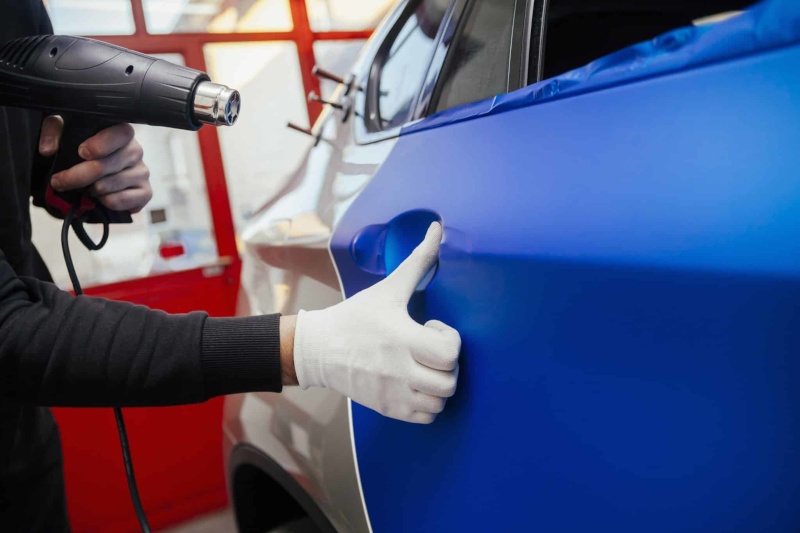 Car Wrapping is a film application technique capable of transforming the vehicle’s aesthetics by changing its color or design without performing expensive painting interventions. Car wrapping films come in a wide range of colors, finishes, and styles, allowing owners to personalize their vehicle’s appearance as they desire.
Car Wrapping is a film application technique capable of transforming the vehicle’s aesthetics by changing its color or design without performing expensive painting interventions. Car wrapping films come in a wide range of colors, finishes, and styles, allowing owners to personalize their vehicle’s appearance as they desire.
Paint Protection Film:
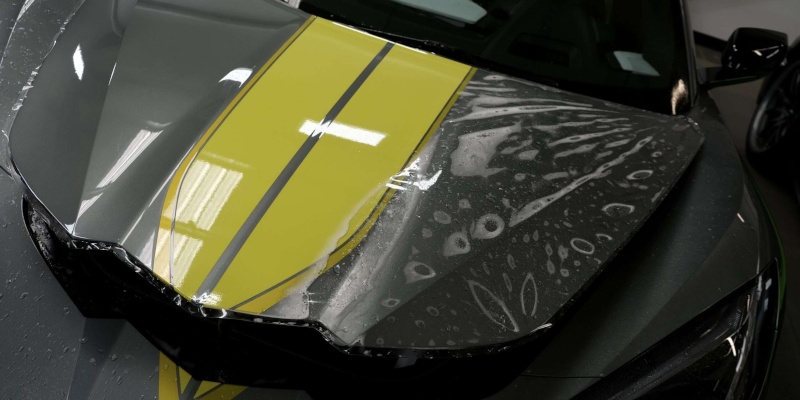 Today, the application of Paint Protection Films (PPF) represents the cutting-edge technique for protecting the original paint of a vehicle. It provides a scratch-resistant and stone-resistant surface that can self-heal. In fact, if the film were to be scratched, exposing it to a heat source, such as sunlight, will prompt immediate regeneration.
Today, the application of Paint Protection Films (PPF) represents the cutting-edge technique for protecting the original paint of a vehicle. It provides a scratch-resistant and stone-resistant surface that can self-heal. In fact, if the film were to be scratched, exposing it to a heat source, such as sunlight, will prompt immediate regeneration.
Classic PPF films, in addition to their protective purpose, also ensure a transparent finish that enhances the original paint color, making it deeper and glossier.
Thanks to the latest technologies, some PPF films today offer a dual advantage; they can maintain their incredible protective properties while also altering the car’s aesthetics. Indeed, there are PPF films designed to donate a matte, iridescent, or metallic finish to the paint.
Differences between Car Wrapping and PPF Films
[back to index]
In this paragraph, we will delve into all their features together to truly understand the various differences:
Material
[back to index]
The material used to produce wrapping film differs from the material used for PPF film. Let’s analyze their characteristics and capabilities:
Car wrapping – PVC material
 Wrapping films are made of Polyvinyl Chloride (PVC) or simply vinyl, a material with high chemical resistance and good temperature resistance. They have a thin thickness, ranging between 90 and 100 microns, which in millimeters corresponds to 0.09 mm / 0.1 mm, approximately half the thickness of PPF films.
Wrapping films are made of Polyvinyl Chloride (PVC) or simply vinyl, a material with high chemical resistance and good temperature resistance. They have a thin thickness, ranging between 90 and 100 microns, which in millimeters corresponds to 0.09 mm / 0.1 mm, approximately half the thickness of PPF films.
Car wrapping films are thermoformable; they are applied to the car’s body with the help of a specific spatula and then heated using a heat gun, molding perfectly around curves and contours. However, this type of film is designed for vehicle customization and lacks protective guarantees against stone chips, debris, or scratches. Additionally, it does not possess self-healing capabilities.
PPF films – TPU material
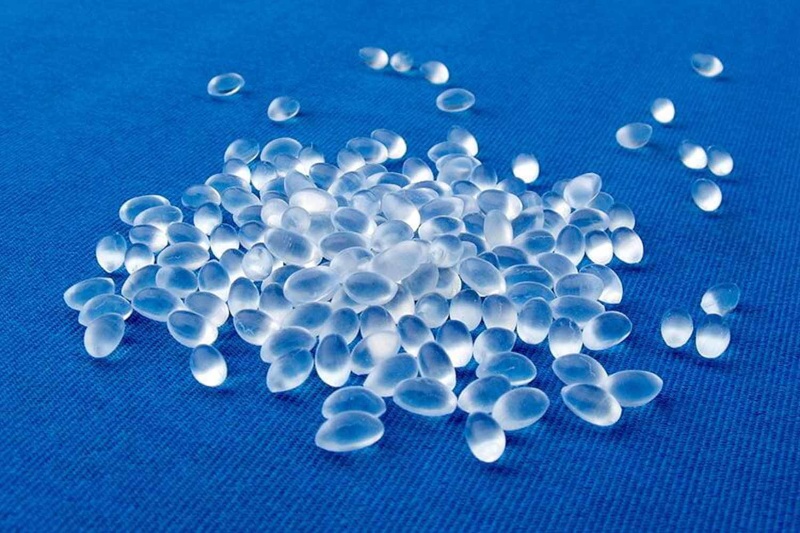 PPF films are made of Thermoplastic Polyurethane (TPU), which, compared to wrapping material, has significantly higher tensile strength, i.e., elongation capacity. In addition, it is resistant to abrasions and chemicals.
PPF films are made of Thermoplastic Polyurethane (TPU), which, compared to wrapping material, has significantly higher tensile strength, i.e., elongation capacity. In addition, it is resistant to abrasions and chemicals.
PPF films have a thickness ranging from 150 to 200 microns, which, in millimeters, corresponds to a thickness of 0.15 mm / 0.2 mm. Our transparent finish Scudo film has a thickness of 185 microns / 0.185 mm. Taking into account the thickness of the adhesive and the “top coating” on the PPF surface, with the latter term referring to the layer providing a superhydrophobic and antistatic effect, the total thickness is 320 microns.
Furthermore, PPF films have excellent elasticity, ensuring durability and resistance to tears, in addition to their scratch-resistant, stone-resistant, and self-healing capabilities. These films are thus capable of providing effective protection against stone chips, debris, and scratches while enhancing the vehicle’s aesthetics without altering its appearance.
Duration and warranty
[back to index]
The duration and warranty of car wrapping films compared to PPF films differ, and below, we will provide an average for each:
Car wrapping
The lifespan of Car Wrapping depends on the quality of the vinyl used. In general, a professional Car Wrapping service has a minimum lifespan and warranty of 5 years and can last several years if the vehicle is adequately maintained.
PPF films
PPF films are known for their exceptional durability, offering long-term protection for the vehicle’s paint. Similarly, the lifespan of a PPF film depends on the quality of the material used. Generally, a professional PPF application service has a lifespan and warranty of 10 years, but if well-maintained, it can last even from 12 to 13 years.
At DettaglioAuto, we guarantee our Scudo protective films for 10 years from their application. If you would like to learn more, click here.
Costs
The cost of car wrapping films is more economical compared to PPF films. The difference in price is primarily due to the raw materials used in producing the two different films. Without delving too much into technicalities, below we will outline the average cost of a complete package for wrapping a car and the average cost of a complete package for applying PPF to a car.
Car wrapping
The cost of a complete exterior wrap for a car varies from €1800 to €5000. The cost depends on the vehicle’s size, its initial conditions, and the type of film chosen for application.
PPF films
On the other hand, the cost of a complete PPF package ranges from €2500 to €5000. Similarly, the cost varies based on the vehicle’s size, its starting conditions, and the type of PPF film chosen for application. If you wish to explore our PPF packages, click here.
Conclusion: Which of the Two Services is Worth Investing In?
[back to index]
There is no right answer to this question as it depends on your specific needs. To summarize, if you are looking for a way to change the design and color of your car, perhaps Car Wrapping is the right choice for you. On the other hand, if you are seeking a method to protect your vehicle over time, preserving both its value and appearance, PPF films are the way to go. Moreover, ppf offers numerous advantages in terms of car cleanliness: thanks to their hydrophobic and antistatic effects, it significantly reduces the frequency of washes and expedites the cleaning process itself. For a consistently clean and impeccable car.
If, however, you are looking for protection that also allows a subtle modification of the aesthetic appearance, our latest cutting-edge films are suitable for you. DettaglioAuto offers PPF films capable of providing a matte, iridescent, or metallic finish to your car’s paint, without compromising their 10-year guaranteed protection!
If you would like to receive a quote for the application of PPF film on your car, please fill out our contact form.



